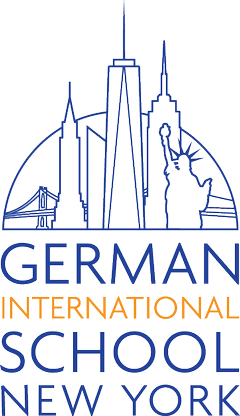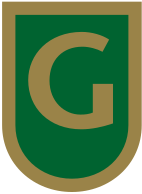
Gymnasium is a term in various European languages for a secondary school that prepares students for higher education at a university. It is comparable to the US English term preparatory high school. Before the 20th century, the gymnasium system was a widespread feature of educational systems throughout many European countries.

In France, secondary education is in two stages:
Education in state institutions is at the initial, primary, secondary and tertiary levels and in the undergraduate university level. Private education is paid, although in some cases state subsidies support its costs. According to studies by UNESCO, education in Argentina and Uruguay guarantee equality to have institutional features that hinder the commercialization of education, as well as Finland has characteristics that favor multiethnic population education and special education, education favors Argentina equality. According to the last census, the illiteracy rate is 1.9%, the second lowest in Latin America. In the last decade, Argentina has created nine new universities, while the outflow of university students increased by 68%.

The German School of Budapest - Thomas Mann Gymnasium is a private international school in Budapest, Hungary. It was founded in 1908 to serve German families in Hungary. It now has a diverse student body with primarily children of the expatriate business and diplomatic communities. Considered to be one of the best schools of its kind, it was awarded a Certificate of Excellence by the Central Agency for German Schools Abroad in 2012 and again in 2020.
The European Baccalaureate is a bilingual educational diploma, which certifies the completion of secondary studies in a European School or Accredited European School by the Board of Governors of the intergovernmental organisation, "The European Schools". The diploma is awarded for the successful achievement of coursework and concomitant examinations which require that students take a minimum of 10 courses as well as be fully proficient in two languages. Students may take up to 14 courses. It is officially recognised as an entry qualification for Higher Education in all the member states of the European Union (EU), as well as in a number of others. All participating countries are legally obligated to ensure EB diploma holders enjoy the same rights and benefits as other holders of secondary school-leaving certificates in their jurisdictions. The name ‘European Baccalaureate’ belongs solely to the European Schools, which, since their establishment, have had a monopoly over its use in all the official languages of the EU.
Colegio Tarbut is a Jewish mixed-sex private school founded in 1961 in the city of Olivos, Buenos Aires Province, Argentina. It offers early childhood, primary, and secondary education.

Colegio Pestalozzi is a German international school in Belgrano, Buenos Aires. It is governed by the Asociación Cultural Pestalozzi. It serves kindergarten through secondary school: Colegio Pestalozzi offers elementary and secondary education as well as an "initial level" for children from two to five years.

Realschule is a type of secondary school in Germany, Switzerland and Liechtenstein. It has also existed in Croatia, the Austrian Empire, the German Empire, Denmark and Norway (realskole), Sweden (realskola), Finland (reaalikoulu), Hungary (reáliskola), Latvia (reālskola), Slovenia (realka), Serbia, and the Russian Empire.

Gymnasium, in the German education system, is the most advanced and highest of the three types of German secondary schools, the others being Hauptschule (lowest) and Realschule (middle). Gymnasium strongly emphasizes academic learning, comparable to the British sixth form system or with prep schools in the United States. A student attending Gymnasium is called a Gymnasiast. In 2009/10 there were 3,094 gymnasia in Germany, with c. 2,475,000 students, resulting in an average student number of 800 students per school.
St Kilian's German School is an independent German international school in Dublin, Ireland.
Buenos Aires International Christian Academy, abbreviated "BAICA", is a pre-K through Grade 12 International school in San Fernando, Buenos Aires Province, in Greater Buenos Aires. BAICA is a member of the Association of Christian Schools International (ACSI), and the Southern Association of Colleges and Schools (SACS).

The Alexander von Humboldt German International School Montreal (AvH) is an international private co-educationnal multilingual school located in Baie-D'Urfé, Quebec, a West Island suburb of Montreal. It was founded in 1980 to educate the German community of Montreal.
The history of formal education in Estonia dates back to the 13–14th centuries when the first monastic and cathedral schools were founded. The first primer in the Estonian language was published in 1575. The oldest university is the University of Tartu which was established by the Swedish king Gustav II Adolf in 1632. In 1919, university courses were first taught in the Estonian language.
The German International School Washington D.C. (GISW), formerly Deutsche Schule Washington D.C. (DSW), is a private, co-educational school in Potomac, Maryland, covering levels preschool through 12th grade. As one of over 140 schools in the network of German Schools around the globe, the GISW has a strong focus on STEM subjects and world languages. The student body encompasses students age 2 in preschool through 12th grade. As of the school year 2022/23, knowledge of German is not required for admission to preschool though Grade 6. German language learning support is provided. The diplomas granted at the end of twelfth grade are the German International Abitur (DIA) and a High School Diploma. These degrees provide students access to the best universities all around the world. Information about the German International Abitur: www.germanapproach.org

The German European School Manila ("GESM") is an international school offering a full bilingual K-12 program in Manila to German and international students. It is an IB World School, a Cambridge and EdExcel school, part of the UNESCO-ASPnet and a two-time recipient of the "Excellent German School Abroad" seal from German authorities.
The Lycee Français de Chicago is a private, French international school located in Lincoln Square, Chicago, Illinois. It offers a dual French and English curriculum. The Lycée is founded on the French National Curriculum as defined by the French Ministry of Education and complemented by an English language program in addition to foreign language courses.

The Deutsches Sprachdiplom der Kultusministerkonferenz (engl.: German Language Certificate of the Education Ministers Conference) is an official German language certificate of the German education authorities and the Foreign Office (Germany) certifying levels of knowledge of the German language in schools worldwide. The program, originally intended to stimulate interest in German, has run since 1973 and, different from the equivalent certificates of the Goethe Institute, is meant for students at officially recognized schools abroad, either Diploma schools or German Schools Abroad. The program prepares the participants for a study in Germany in matters of language and cultural issues. It finishes with an exam and a certification on language competencies on level A2/B1 or B2/C1 of the Common European Framework of Reference for Languages. The certificate together with national school leaving examinations entitles foreign students to apply for university entry in Germany.

The German School Seoul International is a German international school in Hannam-dong, Yongsan-gu, Seoul, South Korea.

The German International School New York is a private, bilingual (German/English) college preparatory school that enrolls over 400 students in grades Pre-K through 12. The School is located in White Plains, New York, approximately 25 miles north of New York City, and is divided into three schools on the same campus: the Lower School, the Middle School and the Upper School.
A high school diploma is a diploma awarded upon graduation of high school. A high school diploma is awarded after completion of courses of studies lasting four years, typically from grade 9 to grade 12. It is the school leaving qualification in the United States and Canada.












